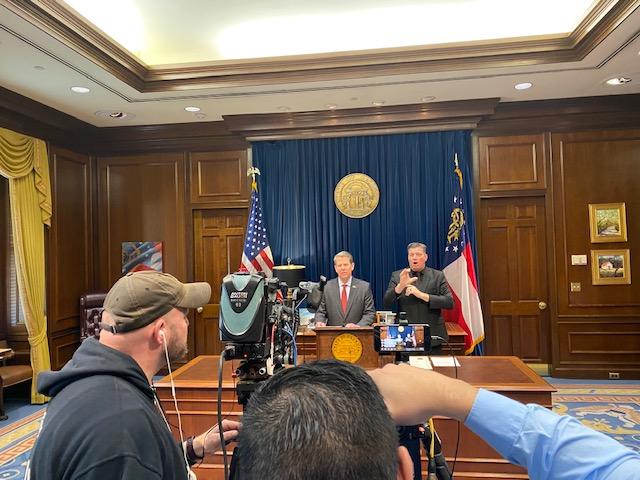Section Branding
Header Content
Kemp Declares Unprecedented Public Health Emergency in Georgia
Primary Content
The declaration is the first in Georgia history and comes after the largest increase of confirmed cases of COVID-19 in a 24-hour period to date. Cases doubled overnight, Gov. Brian Kemp said Saturday.
The number of confirmed cases of Coronavirus has risen to 66, with one death. Stay up to date with the latest numbers here.
This more specialized form of emergency will allow for a more robust response to the crisis, especially in the healthcare sector.
“This declaration will greatly assist health and emergency management officials across Georgia by deploying all available resources for mitigation and treatment of COVID-19 if necessary," Kemp said. "Unlike other states of emergency, this declaration will allow the Department of Public Health to direct specific health care action in extraordinary circumstances.”
Under the emergency declaration, commercial vehicles will be allowed to forgo certain restrictions in order to assist the response effort. The Georgia Composite Medical Board and the Georgia Board of Nursing will also have the authority to grant temporary licenses to professionals who are in good standing with other states in accordance with Georgia law.
Kemp mentioned a number of other things the state is doing to keep residents safe.
The state has allocated $100 million dollars in emergency funding in order to address the spread of the virus, and the state lab has increased their capacity of testing from 100 samples a week, to 200. Restrictions were also put in place for visitation to specific healthcare facilities as well as correctional facilities.
Kemp said they are currently working on the establishment of independent test sites in every major region of Georgia, which he hopes to announce by early next week.
The governor urged Georgians to practice social distancing, stay vigilant for the most vulnerable populations and prepare for more local transmission.

